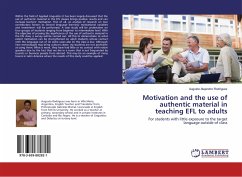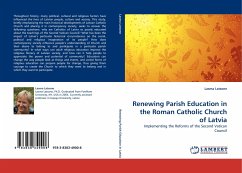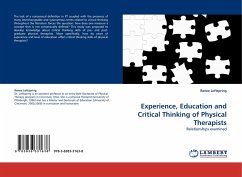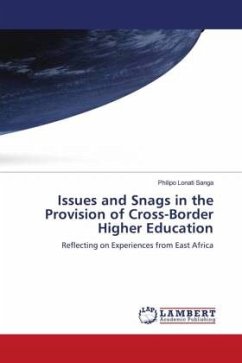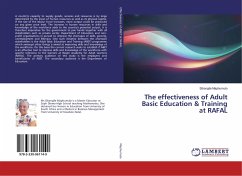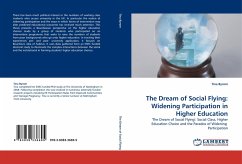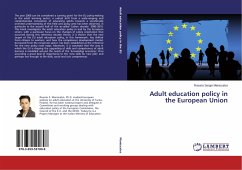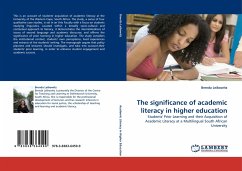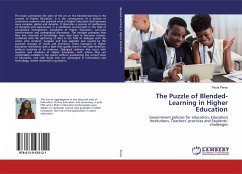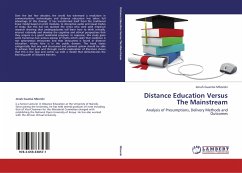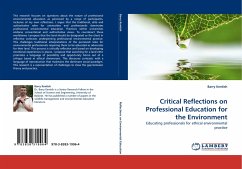
Critical Reflections on Professional Education for the Environment
Educating professionals for ethical environmental practice
Versandkostenfrei!
Versandfertig in 6-10 Tagen
52,99 €
inkl. MwSt.

PAYBACK Punkte
26 °P sammeln!
This research focuses on questions about the nature of professional environmental education as perceived by a range of participants, inclusive of my own reflections. I argue that the traditional, elite and authoritative roles for universities and professionals dominates professional environmental education. Practices within universities endorse conventional and authoritative views. To counteract these worldviews I propose that the land should be designated as the client in reflective contracts underpinning professional environmental practice. This challenges traditional interpretations of the ...
This research focuses on questions about the nature of professional environmental education as perceived by a range of participants, inclusive of my own reflections. I argue that the traditional, elite and authoritative roles for universities and professionals dominates professional environmental education. Practices within universities endorse conventional and authoritative views. To counteract these worldviews I propose that the land should be designated as the client in reflective contracts underpinning professional environmental practice. This challenges traditional interpretations of the perceived roles for environmental professionals requiring them to be educated as advocates for their land. This process is critically reflective and based on developing emotional experiences in places. I propose that searching for a land ethic promotes a language of possibility and opportunity borne out of a critique based in ethical dimensions. This discourse contrasts with a language of reproduction that maintains the dominant social paradigm. This research is a representation of challenges to close the gap between theory and practice.



